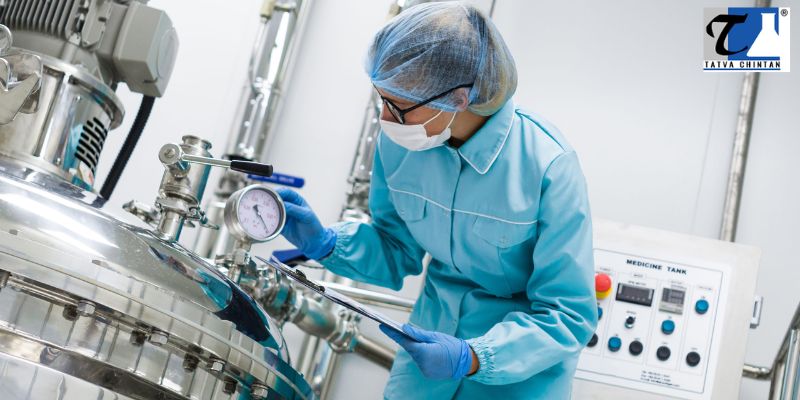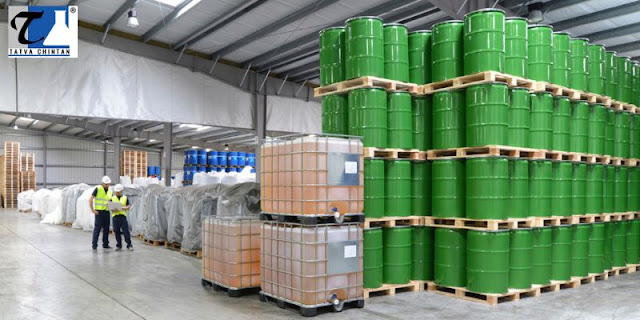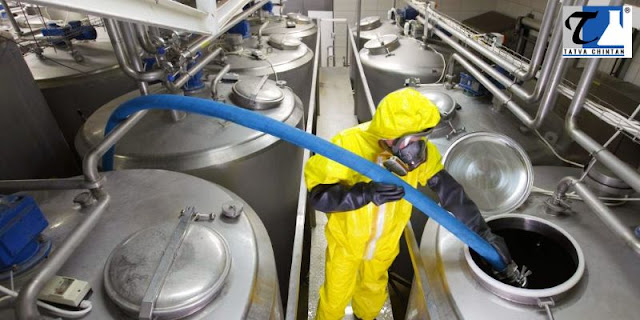How to manage the bulk production of chemicals in industry
The global demand for chemicals is enormous. The bulk production of these chemicals means they are produced on a large scale to meet worldwide needs. After these chemicals are manufactured, many waste products are produced. These wastes and the chemicals themselves can be hazardous, making it necessary to manage them properly.
How to manage the bulk production of chemicals in industry
The main goal for the bulk production of chemicals is to keep manufacturing costs low and maintain a healthy profit. Some common examples of chemicals produced this way include white spirit, glycerine, castor oil, biodiesel, acrylic acid, and acetone.
However, the production process of some of these chemicals results in the release of harmful substances. Also, there are problems with chemical spills, which on a large scale, can be devastating to both human health and the environment.
For these reasons, chemical production companies must pay attention to spill management and adhere to safe practices for protecting health, properties, and the environment. Taking a comprehensive approach to preventing chemical hazards is essential to managing the bulk production of chemicals. Below are some ways to do so:
1. Maintaining chemical packages
Packages like drums and IBCs used to store chemicals must be kept in good condition. Ensure that you immediately discard and replace any leaking, split, or damaged packages. Also, your workers receiving any chemical delivery must ensure that the substances contained therein are in good condition.
This also goes with closely inspecting all drums and IBCs that arrive at the workplace. Damaged packages should not be accepted, as doing so has adverse effects. Ensuring that there is no sign of damage will help you manage the chemicals and avoid a potential hazard.
Furthermore, the chemical residue must be cleaned if it is found on the chemical package after its use. Small amounts of goods deemed dangerous, like toxic substances or flammable liquids, can pose a serious risk to workers handling them. Chemical burns or asphyxiation are possible risks associated with exposure to such chemicals.
2. Drum and IBC storage
In the case of an accident, you will have adequate spill containment if you have your chemicals in chemical storage containers or bundling dangerous goods containers. This means that you must select the proper storage for your chemicals. Some of the crucial factors to consider may include the following:
- To comply with the containment requirement, a spill containment hopper equipped with a liquid-tight lid must be used.
- The available bundling storage equipment must suit the capacity and class of chemicals you are using. Having the appropriate storage equipment will help reduce the impact of a spill.
- Where your containers are installed should be convenient for the transfer of chemicals.
- Ensure that you can use extra equipment for safer decanting and pumping. Improper handling and chemical spills can be avoided by pumping substances directly from an IBC.
- The chemical storage equipment needs to be cleaned. To keep the spill sump functioning correctly, ensure that any chemical spills or leaks are immediately cleaned up and properly disposed of.
3. Handling equipment
Handling equipment properly can help minimize the likelihood of chemical spills. Proper handling helps with the easy movement of chemicals within the work area. This, in turn, will reduce the stress and physical strain your workers experience.
It also reduces the risk of spills because these types of equipment are equipped with control measures and bunding. There are numerous ways to help workers move chemicals around a workplace. These consist of bundled drum trolleys, chemical drum dollies, and mobile waste management dollies.
Using IBC dispensing trays and detachable drum decanting apparatus can improve efficiency and safety while workers are decanting potentially dangerous chemicals.
Also, you must ensure that equipment such as forklifts are operated appropriately when maneuvering IBCs. A forklift could drop an IBC if it jerks or jumps, which could lead to a chemical spill. Therefore, all handling equipment must be serviced and maintained regularly. The operator should also be given adequate training to perform their duties safely.
4. Training staff
It is crucial to have a high standard for workers working where bulk chemicals are produced. For the session to be efficient, the following key points will be helpful:
- Teach workers the proper methods for handling, transferring, and decanting chemicals.
- Ensure that workers can identify spill risks.
- Teach workers how to use storage equipment and chemical containers properly.
- Explanation of specific chemical spill risks
- Train workers on using PPE as applicable to the type of chemical they will be handling.
5. Spill response
Workers in the bulk production of chemicals should know how to respond to bulk chemical spills. Creating a plan for responding to chemical spills is a crucial aspect of spill prevention. A clean-up plan should cover how to clean up effluent, dispose of waste chemicals, clean up a mess, contain a chemical spill, and use the kits.
There are many different chemical spill kits, but they generally contain containers and tools for chemical waste, materials that soak up waste, neutralizing agents, and PPE. Workers in the production area should have and adhere to the instructions present in the safety kit. This will guarantee a timely and effective response to the spill.
Conclusion
The global need for chemicals makes bulk production attractive for many chemical companies. These chemicals find applications across various industries, but their production processes can be complex. Leaks and chemical spills can be disastrous, so the chemicals must be appropriately handled. Maintaining the chemical packages and proper handling of equipment, among other things, will ensure that these chemicals are properly managed.






Comments
Post a Comment